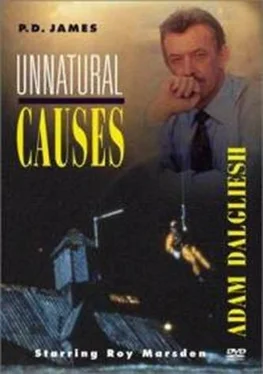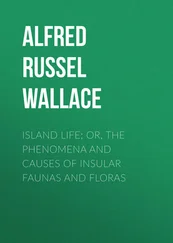P James - Unnatural Causes
Здесь есть возможность читать онлайн «P James - Unnatural Causes» весь текст электронной книги совершенно бесплатно (целиком полную версию без сокращений). В некоторых случаях можно слушать аудио, скачать через торрент в формате fb2 и присутствует краткое содержание. Жанр: Детектив, на английском языке. Описание произведения, (предисловие) а так же отзывы посетителей доступны на портале библиотеки ЛибКат.
- Название:Unnatural Causes
- Автор:
- Жанр:
- Год:неизвестен
- ISBN:нет данных
- Рейтинг книги:4 / 5. Голосов: 1
-
Избранное:Добавить в избранное
- Отзывы:
-
Ваша оценка:
- 80
- 1
- 2
- 3
- 4
- 5
Unnatural Causes: краткое содержание, описание и аннотация
Предлагаем к чтению аннотацию, описание, краткое содержание или предисловие (зависит от того, что написал сам автор книги «Unnatural Causes»). Если вы не нашли необходимую информацию о книге — напишите в комментариях, мы постараемся отыскать её.
Unnatural Causes — читать онлайн бесплатно полную книгу (весь текст) целиком
Ниже представлен текст книги, разбитый по страницам. Система сохранения места последней прочитанной страницы, позволяет с удобством читать онлайн бесплатно книгу «Unnatural Causes», без необходимости каждый раз заново искать на чём Вы остановились. Поставьте закладку, и сможете в любой момент перейти на страницу, на которой закончили чтение.
Интервал:
Закладка:
“So Digby Seton is out. What about the others?”
“We’ve only had time for a preliminary check. I’m taking their statements this afternoon. But it looks as if they’ve all got alibis of a sort for the time of death. All except Miss Dalgliesh. Living alone as she does, that’s not surprising.”
The flat, monotonous voice did not change. The sombre eyes still looked out to sea. But Dalgliesh was not deceived. So this was the reason for the summons to Seton House, for the Inspector’s unexpected outburst of confidence. He knew how it must look to Reckless. Here was an elderly, unmarried woman living a lonely and isolated life. She had no alibi for the time of death nor for Wednesday night when the body was launched out to sea. She had an almost private access to the beach. She knew where Sheldrake lay. She was nearly six foot tall, a strong, agile countrywoman, addicted to strenuous walking and accustomed to the night.
Admittedly she had no apparent motive. But what did that matter? Despite what he had said to his aunt that morning Dalgliesh knew perfectly well that motive was not the first concern. The detective who concentrated logically on the “where,” “when” and “how” would inevitably have the “why” revealed to him in all its pitiful inadequacy. Dalgliesh’s old chief used to say that the four L’s-love, lust, loathing and lucre-comprised all motives for murder. Superficially that was true enough. But motive was as varied and complex as human personality. He had no doubt that the Inspector’s horribly experienced mind was already busy recalling past cases where the weeds of suspicion, loneliness or irrational dislike had flowered into unexpected violence and death.
Suddenly Dalgliesh was seized with an anger so intense that for a few seconds it paralysed speech and even thought. It swept through his body like a wave of physical nausea leaving him white and shaken with self-disgust. Choked with this anger he was luckily saved from the worst follies of speech, from sarcasm, indignation or the futile protest that his aunt would, of course, make no statement except in the presence of her solicitor. She needed no solicitor. She had him. But, God, what a holiday this was proving to be!
There was a creak of wheels and Sylvia Kedge spun her wheelchair through the French windows and manoeuvred it up beside them. She didn’t speak but gazed intently down the track towards the road. Their eyes followed hers. A post office van, brightly compact as a toy, was careering over the headland towards the house.
“It’s the post,” she said. Dalgliesh saw that her hands were clamped to the chair sides, the knuckles white. As the van drew up before the terrace he watched her body half-rise and stiffen as if seized with a sudden rigor. In the silence which followed the stopping of the engine, he could hear her heavy breathing.
The postman slammed the van door and came towards them, calling a cheerful greeting. There was no response from the girl and he glanced puzzled from her rigid face to the still figures of the two men. Then he handed Reckless the post. It was a single foolscap envelope, buff coloured and with a typewritten address.
“It’s the same kind as before, Sir,” he said. “Like the one I gave her yesterday.” He nodded towards Miss Kedge, then, still getting no response, backed awkwardly towards his van muttering, “Good morning.”
Reckless spoke to Dalgliesh: “Addressed to Maurice Seton, Esq. Posted either late on Wednesday or early on Thursday from Ipswich. Postmarked midday yesterday.”
He held the envelope delicately by one corner as if anxious not to impose more fingerprints. With his right thumb he edged it open. Inside there was a single sheet of foolscap paper covered with double-spaced typescript. Reckless began to read aloud: “The corpse without hands lay in the bottom of a small sailing dinghy drifting just within sight of the Suffolk coast. It was the body of a middle-aged man, a dapper little cadaver, its shroud a dark pin-striped suit which fitted the narrow body as elegantly in death as it had in life…”
Suddenly Sylvia Kedge held out her hand. “Let me see.”
Reckless hesitated, then held the sheet before her eyes. “He wrote it,” she said hoarsely. “He wrote it. And that’s his typewriting.”
“Maybe,” said Reckless. “But he couldn’t have posted it. Even if this went into the box late on Wednesday night he couldn’t have put it there. He was dead by then.”
She cried out: “He typed it! I know his work, I tell you. He typed it! And he hadn’t any hands!”
She burst into peal upon peal of hysterical laughter. It rang over the headland like a wild echo, so startling a flock of gulls that shrieking their alarm they whirled from the cliff edge in a single white cloud.
Reckless looked at the rigid body, the screaming mouth, with speculative unconcern, making no move to comfort or control her. Suddenly Digby Seton appeared in the French windows, his face white under the ridiculous bandage.
“What the hell…?”
Reckless looked at him, expressionless, and said in his flat voice: “We’ve just heard from your brother, Mr. Seton. Now isn’t that nice?”
12
It took some time to pacify Miss Kedge. Dalgliesh had no doubt that her hysteria was genuine; this was no play-acting. He was only surprised that she should be so upset. Of all the little community at Monksmere Sylvia Kedge alone seemed to be genuinely shocked and distressed at Seton’s death. And, certainly, the shock was real enough. She had looked and behaved like a woman maintaining a precarious self-control which had snapped at last. But she made visible efforts to pull herself together and was at last well enough to be escorted back to Tanner’s Cottage by Courtney, who had succumbed entirely to the pathos of her drawn face and pleading eyes and who pushed her wheelchair down the lane like a mother displaying her fragile newborn to the glares of a potentially hostile world. Dalgliesh was relieved to see her go. He had discovered that he did not like her and was the more ashamed of the emotion because he knew that its roots were unreasonable and ignoble. He found her physically repellent. Most of her neighbours used Sylvia Kedge to gratify, at small expense, an easy impulse to pity while ensuring that they got their money’s worth. Like so many of the disabled she was at once patronised and exploited. Dalgliesh wondered what she thought of them all. He wished he could feel more sorry for her but it was difficult not to watch, with a kind of contempt, the way in which she made use of her disability. But then what other weapons had she? Despising the young constable for his easy capitulation and himself for lack of feeling, Dalgliesh set off back to Pentlands for lunch. He walked back by the road. It took longer and was less interesting but he had always disliked retracing his footsteps.
The route took him past Bryce’s cottage. As he reached it an upstairs window was opened and the owner shot his long neck out and called: “Come in, Adam, dear boy. I’ve been watching out for you. I know you’ve been spying for that dreary little friend of yours but I don’t hold it against you. Just leave your rhino whip outside and help yourself to whatever drink you prefer. I’ll be down in a jiffy.”
Dalgliesh hesitated then pushed open the cottage door. The little sitting room was as untidy as always, a repository of bric-a-brac which could not appropriately be housed in his London flat. Deciding to wait for his drink, Dalgliesh called up the stairs: “He’s not my dreary little friend. He’s a highly competent police officer.”
“Oh no doubt!” Bryce’s voice was muffled. Apparently he was pulling clothes over his head. “Competent enough to nab me if I’m not cunning. I was stopped for speeding on the A13 about six weeks ago and the officer concerned-a beefy brute with one of those metamorphic glares-was most uncivil. I wrote to the Chief Constable about it. It was a fatal thing to do, of course. I see that now. They’ve got it in for me all right. My name’s on a little list somewhere, you may be sure.”
Читать дальшеИнтервал:
Закладка:
Похожие книги на «Unnatural Causes»
Представляем Вашему вниманию похожие книги на «Unnatural Causes» списком для выбора. Мы отобрали схожую по названию и смыслу литературу в надежде предоставить читателям больше вариантов отыскать новые, интересные, ещё непрочитанные произведения.
Обсуждение, отзывы о книге «Unnatural Causes» и просто собственные мнения читателей. Оставьте ваши комментарии, напишите, что Вы думаете о произведении, его смысле или главных героях. Укажите что конкретно понравилось, а что нет, и почему Вы так считаете.












